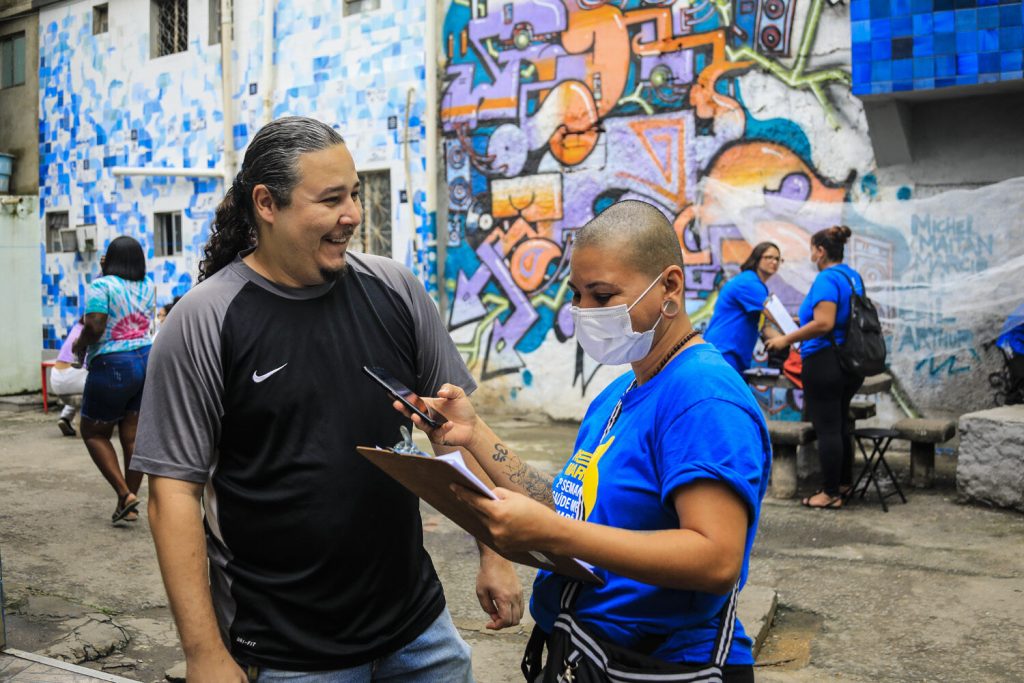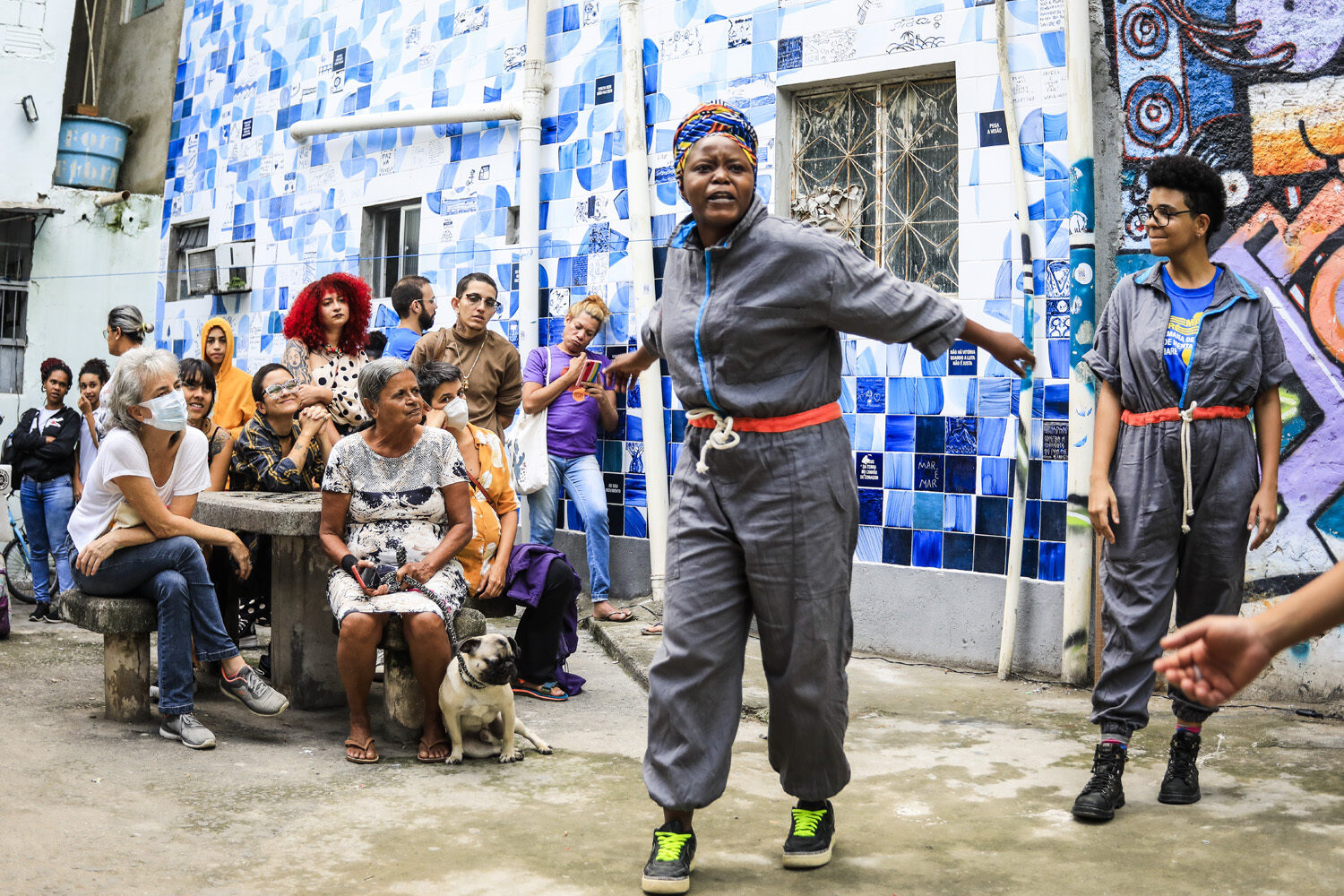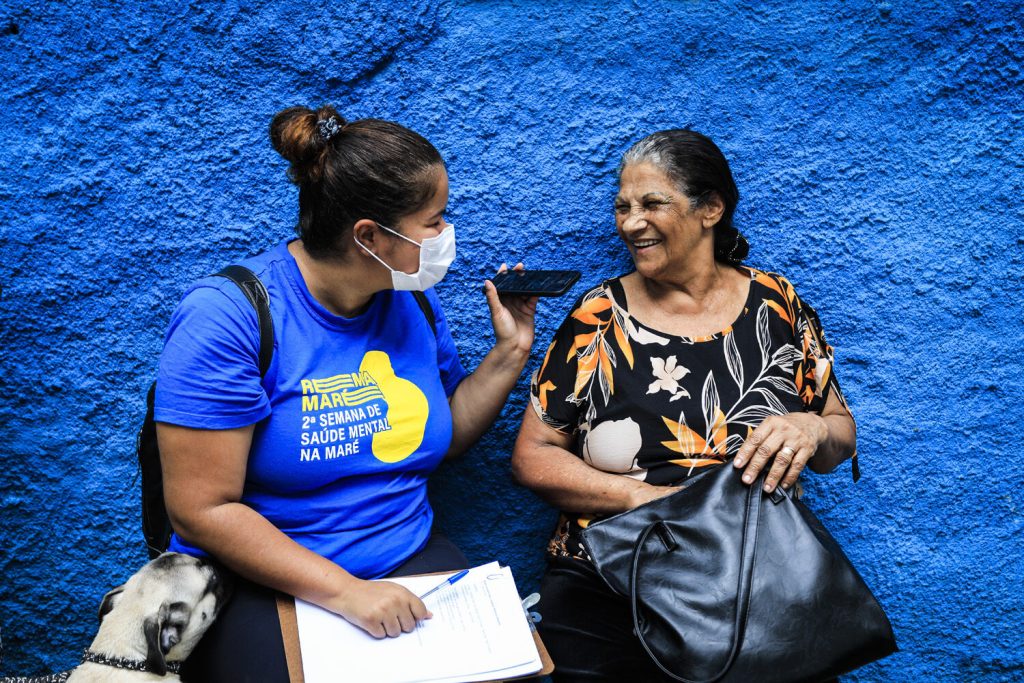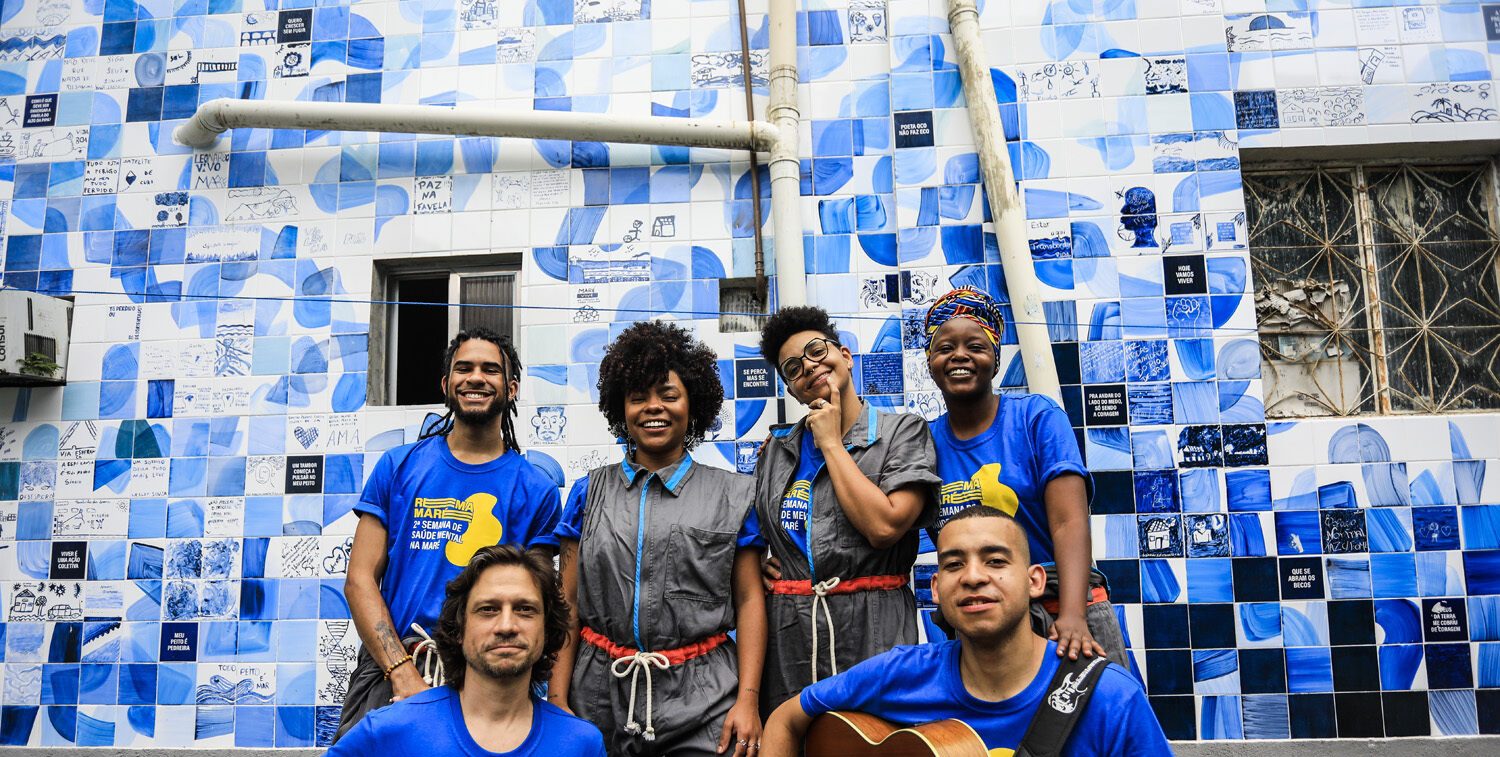Progressing the UN SDGs in territories subject to multiple stress factors through collaborative arts-based research projects
| Lead | Queen Mary University |
| REF Panel | A – Medicine, health, and life sciences |
| REF UoA | 33 – Music, drama, dance, performing arts, film, and screen studies |
| Locations | Brazil, Colombia, Peru, UK |
| Funders | Arts and Humanities Research Council (AHRC), British Academy, Economic and Social Research Council (ESRC), Engineering and Physical Sciences Research Council (EPSRC), Leverhulme Trust, Medical Research Council (MRC) |
| Funds or grants | Global Challenges Research Fund (GCRF), Newton Fund, Research Networking Grants, UK Research and Innovation (UKRI) Responsive-Mode Funding, UKRI Special COVID-19 Grant |
| Partners | In Brazil: Federal University of Rio de Janeiro, People’s Palace Projects (PPP) do Brasil, Redes da Maré |

“We built new ways of working together. International academics carefully inserted themselves in the context and supported not only language translation, but also cultural, political, and methodological translation (…) and during the methodological construction process, we [Redes da Maré] didn’t feel in a different position from the universities, we weren’t just the object of research, but we affirmed ourselves as knowledge producers and disseminators.” LMIC-based researcher
In Low- and Middle-Income Countries (LMICs), communities subject to multiple stress factors face significant socio-economic challenges. People’s Palace Projects (PPP), a research centre at Queen Mary University of London, co-created research practices with arts organisations in Latin America, developing arts and cultural practices as a resource for resilience, resistance, and recovery. Practice-led art methods connect knowledge production, practical experience, and local context. These methods empower community-based organisations in using local resources and cultural practices, thus expanding civil society’s agency in progressing towards the UN SDGs, even in fragile contexts.
Key Impacts
Increased global awareness on the importance of protecting indigenous cultures
- Collaboration with the Kuikoro people in the Xingu Indigenous Territories (Brazil) highlighted their heritage and repositioned their culture through performances, multi-media installations, debates, and radio documentaries. PPP also mobilised support for the Kuikuro during the COVID-19 pandemic.
- Workshops with indigenous leaders, artists, policymakers, and academics on indigenous engagement in research partnership and knowledge mobilisation produced policy recommendations, influencing UKRI research guidelines.
Improved effectiveness of SDGs progress measurement
- 49 leading arts organisations in Brazil and the UK used PPP’s toolkit on measuring cultural value, thus increasing their capacity to monitor progress towards social development, respond to specific challenges, and design independent research projects.
- The new practice-led art and transdisciplinary methodologies have been integrated into Rumos, Brazil’s largest open-call arts program, benefiting a wider range of organisations and artists.
Establishment of arts-based mental health and wellbeing research networks across Latin America
- Uma só voz/With One Voice Choir showed positive wellbeing outcomes for homeless people in Rio de Janeiro and embedded the programme in the city’s most popular museum.
- Partnership with Redes da Maré enabled a long-lasting art-based research collaboration that highlighted the benefits of co-creating research with community-based organisations. It revealed art’s positive impact on residents’ mental health and wellbeing amid urban violence in 16 favelas in Rio de Janeiro.
- Research collaboration expanded to Argentina, Brazil, Colombia, and Peru, forming research networks of art organisations to reduce mental distress risks in young people.

Underpinning research enablers


Encourage challenge-led interdisciplinary and transdisciplinary research
- Constructive funding schemes: Funding schemes that encouraged challenge-led and transdisciplinary approaches were crucial for the project’s success. By creating an environment that fostered cross-pollination of ideas, the project leveraged the strengths of different disciplines (e.g., psychiatry, sociology, anthropology, and economics).
- Interdisciplinary synergies and thematic intersections: Collaboration between social scientists, artists, and civil society experts enabled exploration of the intersections of violence, poverty, mental health, geography, and the arts. This productive interdisciplinary synergy brought together different perspectives and helped to address understudied aspects, leading to valuable findings to improve favela residents’ quality of life.
Acknowledge added value of relationships and lived experience
- Levering connections of civil society organisations: Partnerships with non-academic organisations based on mutual benefits and ethics helped ensure the quality of knowledge production. In Brazil, Redes da Maré accessed their existing social networks, facilitating robust data collection through transparent conversations with favela residents.
- Benefits of seeing on-the-ground experience: The curiosity and willingness of researchers and partners to immerse themselves in the lives and realities of the communities they study and engage with facilitated a more meaningful understanding of the local context and data, leading to relevant use in fragile territories.
